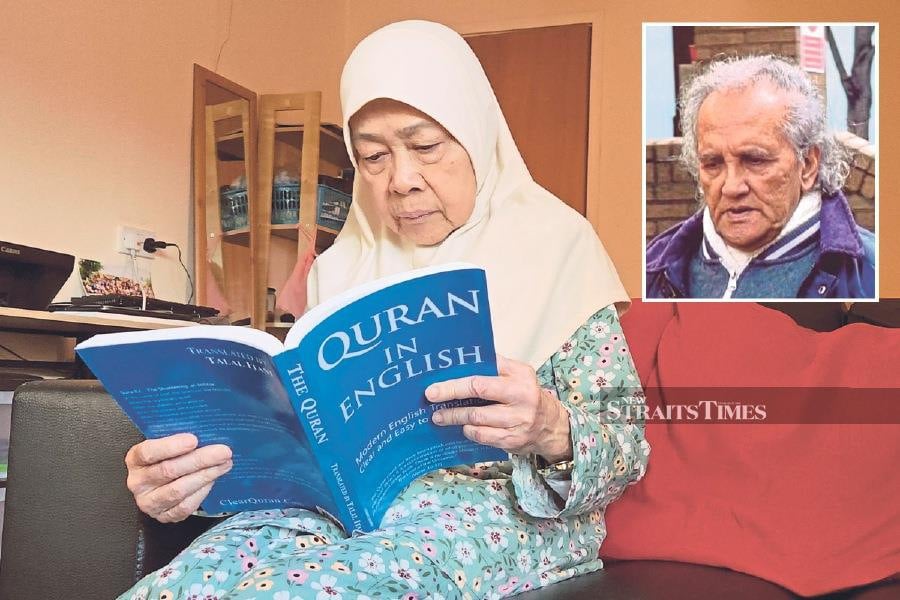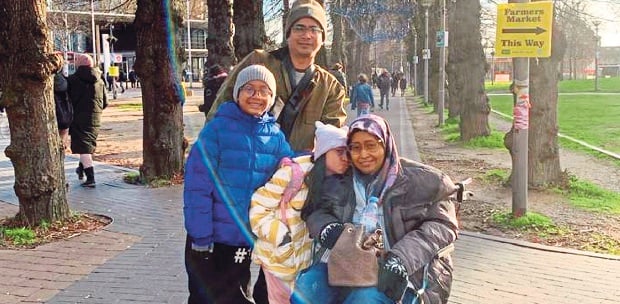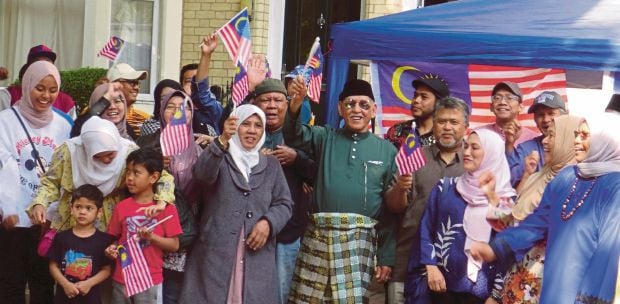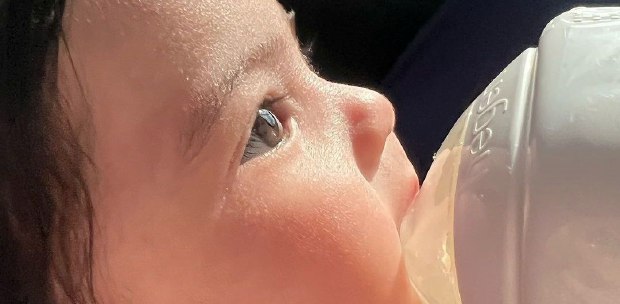LONDON: Aishah Wahab's journey to independence SITI Aishah Wahab made three promises to her sister when she said goodbye to her in November 2013 following her release from a Maoist collective in south London, where she had been held captive for 40 years.
She said she would learn to read the Quran, even if it was a translation, she would learn to pray and rediscover Islam and return to Malaysia.
Siti Aishah regained her mental and physical independence 10 years after departing the front door of the house in Brixton where she was said to have been held in "involuntary detention" by the Maoist self-styled leader, Aravindan Balakrishnan.
Siti Aishah, who welcomed me into her flat in Leeds, was a far cry from the media portrayal of her at the time of her release.
The young woman in black Maoist uniform who distributed leaflets to students at London universities in the 1970s, was no more.
The 79-year-old woman donning baju kurung and hijab appeared frail and hunched, but she was eager to share the fulfilment of her promises to her older sister, Kamar Mahtum, and more.
Next year, Siti Aishah will graduate with a degree in Arabic and Middle Eastern studies.
She was determined to acquire Arabic so she could comprehend the Quran. Her bookcases groan under the weight of the Quran, books on hadith (sayings of Prophet Muhammad), and translations of the Quran. She performed umrah immediately after the Covid-19 lockdown and returned to Malaysia to the embrace of her siblings.
Siti Aishah's actions exemplified the perseverance and resilience of the oppressed. She is free of the mental restraints she and others had endured for 40 years in the collective in Brixton, south London.
"In that sense, I have changed a lot," said Siti Aishah of what she had done with her newfound freedom while nursing the mental scars that would have permanently damaged lesser souls.
She recalled the beatings that were administered, as well as the culture of no questions and reporting, in which no one ventured to discuss anything with anyone else without being reported to the cult leader.
"At first, I believed in his democratic centralism ideologies, his approach to communism and socialism, but when he started beating me for no apparent reason, I wanted to leave.
"But then, Katy (daughter of Bala and Sian, another cult member) was born.
"I felt it was my responsibility to look after her. Whenever Bala and his wife, Chanda, were not around, we would give her hugs and show her we loved her," said Siti Aishah of the bond between her and the child, Katy Morgan-Davies, who was instrumental in the escape that made headlines on Oct 25, 10 years ago.
The bond remained strong until today when both were relocated to Leeds and both studied at Leeds University. Siti Aishah attended Katy's graduation when she left with first-class honours in philosophy and sociology.
Siti Aishah, a native of Jelebu, shared Katy's lack of animosity towards the tyrannical cult leader, who died in prison last year. After more than 30 years of suffocating confinement, their philosophical outlook may have helped them adapt.
For the imprisonment of his daughter Katy, sexual assault, cruelty and false imprisonment of other members of the collective, Bala was sentenced to 23 years' jail.
"I can't be angry with him. I was 24 and was old enough to know whether to join him or not — and I chose to join him. I can't blame him for that.
"It was Omar (Siti Aishah's former fiancé) who brought me there and it wasn't Bala who put a gun to my head," said Siti Aishah, who believes Allah had given her that experience to be closer to Him.
"Everything that happened I (now) relate to Allah testing me. What I learned as soon as I re-entered Islam is that Allah was there all the time.
"There must be a reason He let me do what I did," she said, quoting a verse from the Quran which states "He won't give a task to you if you couldn't manage it".
"So, obviously, He knew I could manage it. He gave me so many barakah (blessings) the whole time when I was in the collective; if there's anything that's difficult, something else happened, He must have intervened," she said.
The beatings she received at the hands of the manipulative "Comrade Bala", who later compelled the members to call him God, sowed the seeds of her desire to flee.
"I wanted to escape, but I didn't know people outside, I knew I was born a Muslim, but I had not practised it. It would have resulted in beatings," reflected Siti Aishah, who remembers the closest thing that Bala alluded to as a supreme power was a machine called Jackie (an acronym for Jehovah, Allah, Christ, Krishna and Immortal Easwaran).
Jackie, a Chinese electronic satellite system, was used to control their minds, and was said could cause natural disasters.
During one of the permitted outings to the laundrette or shops, Siti Aishah had intimated to another cult member who accompanied her, her desire to return to Islam. Her friend asked if she remembered the syahadah (declaration of faith).
In the total darkness of her room that she shared with Bala's sister-in-law, who was disabled. Siti Aishah tried reciting the syahadah and to her delight she could still say it.
"That proved I'm still a Muslim!" said Siti Aishah and she made a determined effort to learn again about the religion she had neglected for over 40 years.
Her thirst for knowledge after her release is ongoing, helped by university friend Najmah, who taught her the Quran and took her to perform the umrah.
She regularly attends the mosque and is no stranger to gatherings held by the Malaysian community in Leeds.
It was from a Facebook post by Hamidi Abdul Rahman, of the Malay community in the United Kingdom, that alerted me to Siti Aishah's development. He had visited her and written about how she wanted to meet more Malaysians.
Now, she is a regular guest at events held by the Malaysian community in Leeds where she can enjoy Malaysian food.
"But I can't eat anything hard because my teeth are rotten," she said. Bala had prevented his followers from going to the dentist or seeking treatment at the hospitals. He told Siti Aishah that teeth would regenerate after 100 years.
She chuckles as she recalls all of what she now refers to as the "nonsensical" teachings of Bala.
Severing of family ties was one of the tactics that Bala had employed. When Siti Aishah wanted to call her mother and family, she was told that she did not need her old family but was encouraged to build a new one with members of the cult. But it turned out to be a "family" built on suspicion and fear of one another.
While members were forced to go out to work and hand over their earnings to Bala, the leader himself did not work. They all lived on social benefits that Bala's disabled sister-in-law was entitled to.
"I am thankful for a loving family who still wanted me to go home and live with them. I want to visit again but if I can't, I would like to seek their forgiveness for whatever wrongdoings, and I too forgive them," she said.






